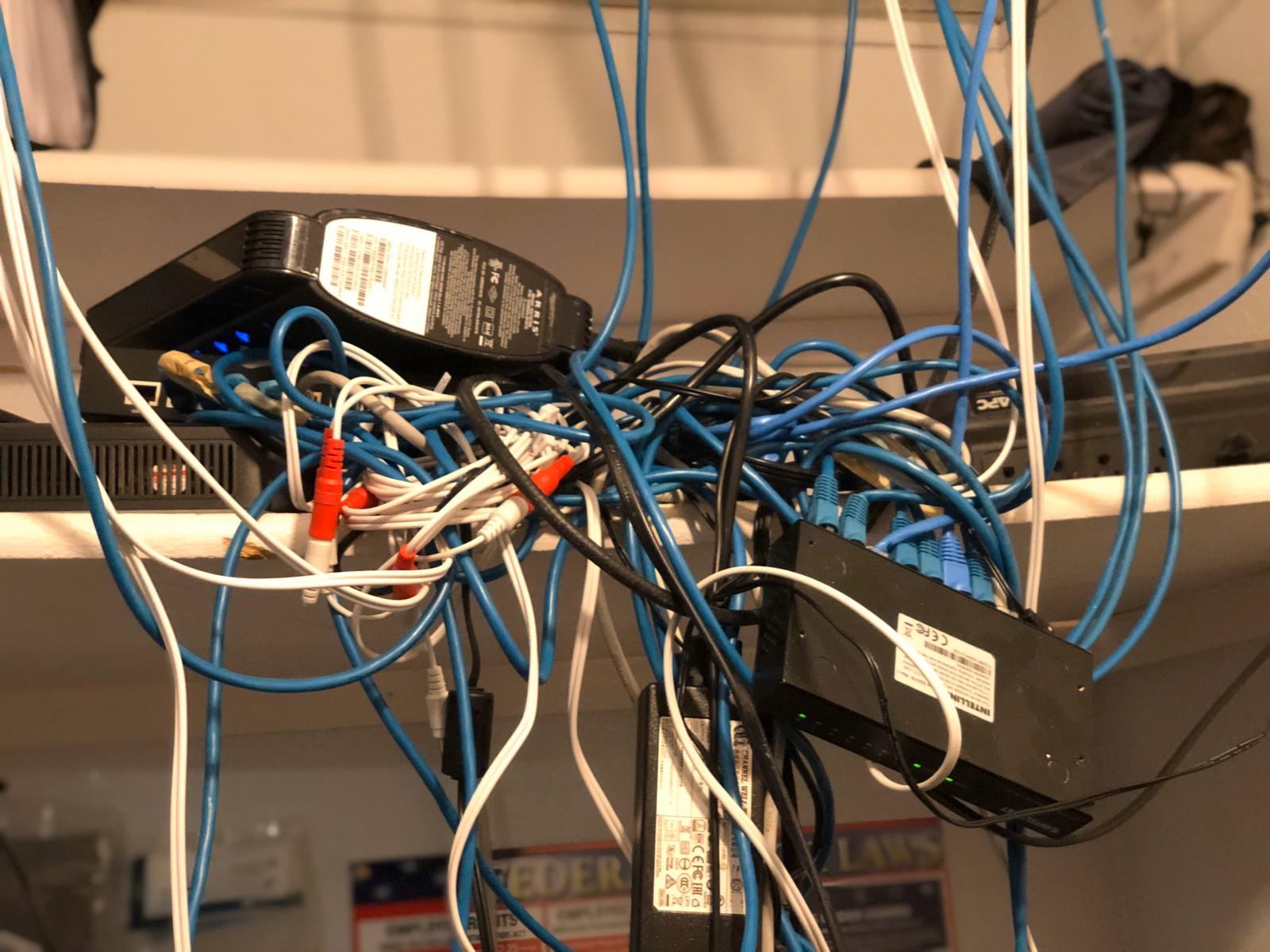Discover the ultimate gaming gift guide! Explore the best internet-ready gifts for gamers, including high-speed routers, headsets, and accessories for the holidays.
12 December, 2024 | Posted by: Pablo Mendoza
Category: Gaming | No Comments

The holidays are the perfect time to surprise the gamer in your life with a gift that levels up their gaming experience. Gamers today don’t just need the latest games; they need tools that enhance performance, boost connectivity, and support smooth online gameplay.
From blazing-fast gaming routers to immersive audio headsets and cutting-edge accessories, this guide will help you find the ideal internet-ready gifts that any gamer will love. Whether they play casually or competitively, these gifts are guaranteed to bring joy.
| Gift Idea | Why It’s Perfect for Gamers | Price Range |
|---|---|---|
| High-Speed Gaming Routers | Reduces latency and provides smooth online gameplay. | $150-$400 |
| Gaming Headsets | Immersive audio for multiplayer games. | $50-$200 |
| Customizable Keyboards | Offers precision and personalization for PC gamers. | $70-$200 |
| Gaming Monitors | High refresh rates for a competitive edge. | $200-$800 |
| Game Pass Subscriptions | Access to hundreds of online multiplayer games. | $10-$20/month |
| Streaming Equipment | Perfect for gamers who want to share their gameplay. | $100-$500 |
Finding the perfect gift for a gamer doesn’t have to be complicated. With options ranging from high-speed routers to immersive audio headsets, there’s something for everyone. Focus on gifts that enhance their gaming experience, and you’ll be a holiday hero.
🎄 This season, give the gamer in your life a gift that keeps them connected, competitive, and entertained!
Level up your holiday gaming marathons with the best internet providers. Discover top gaming plans with fast speeds, low latency, and unlimited data for an unbeatable experience.
12 December, 2024 | Posted by: Pablo Mendoza
Category: Gaming | No Comments

Holiday gaming marathons are a cherished tradition for many, whether it's battling opponents online, exploring immersive game worlds, or connecting with friends over multiplayer sessions. However, a poor internet connection can turn those experiences into a frustrating lag-filled ordeal.
Gaming demands fast speeds, low latency, and reliable performance, especially during the holiday season when multiple devices compete for bandwidth. In this guide, we’ll expand on the best internet providers for gamers, their standout features, and how they compare to ensure you’re ready for an uninterrupted holiday gaming marathon.
| Provider | Plan | Max Speeds | Latency | Data Caps | Price |
|---|---|---|---|---|---|
| Verizon Fios | Fios Gigabit | 940 Mbps | Low | No data caps | $89.99/month |
| Xfinity | Gigabit Extra | 1200 Mbps | Low-Medium | 1.2 TB (Unlimited available) | $80/month |
| Spectrum | Internet Ultra | 500 Mbps | Medium | No data caps | $69.99/month |
| AT&T Fiber | Internet 1000 | 1 Gbps | Low | No data caps | $80/month |
| Cox | Gigablast | 1 Gbps | Medium | 1.25 TB (Unlimited available) | $99.99/month |
A great internet connection can transform your holiday gaming marathons from frustrating to fantastic. Whether you’re gaming solo or competing with friends, the right ISP and plan will ensure smooth gameplay, fast downloads, and an unbeatable experience.
🎮 This holiday season, level up your gaming setup with an internet plan designed for performance and reliability!
Explore the best internet providers for online gaming in 2024, focusing on speed, latency, and gaming features. Learn about top picks like Xfinity, and Verizon Fios to enhance your gaming experience.
22 October, 2024 | Posted by: Pablo Mendoza
Category: Gaming, Internet | No Comments

In the fast-paced world of online gaming, having a reliable internet connection is crucial. Whether you're battling it out in a competitive shooter or exploring vast open worlds, the quality of your internet can make or break your gaming experience. In this comprehensive guide, we'll delve into the best internet providers for online gaming in 2024, focusing on speed, latency, and overall performance to help you make an informed decision.
When it comes to online gaming, two factors stand out as particularly important: internet speed and latency.
In 2024, several internet service providers (ISPs) stand out for their gaming-friendly services. Here are three of the top contenders:
Xfinity offers a range of high-speed internet plans that are well-suited for gaming. With speeds up to 1200 Mbps, Xfinity ensures that gamers have the bandwidth needed for a seamless experience. The provider also offers a Gaming Pro plan, which includes features like low latency routing and unlimited data, making it an excellent choice for serious gamers.
AT&T's fiber-optic internet service provides some of the fastest speeds available, reaching up to 5000 Mbps in select areas. Fiber-optic connections are known for their low latency and high reliability, making AT&T a strong contender for gamers looking for top-notch performance. Additionally, AT&T offers a dedicated gaming package with optimized routing paths to minimize lag.
Verizon Fios is another fiber-optic provider that excels in delivering high-speed internet with low latency. With plans offering speeds up to 940 Mbps, Verizon Fios is ideal for both casual and competitive gamers. Their network is known for its stability and consistent performance, ensuring that gamers can enjoy uninterrupted sessions.
To help you choose the best provider, let's compare some key gaming features offered by Xfinity, AT&T, and Verizon Fios:
| Feature | Xfinity | AT&T | Verizon Fios |
| Maximum Speed | 1200 Mbps | 5000 Mbps | 940 Mbps |
| Connection Type | Cable | Fiber-optic | Fiber-optic |
| Latency Optimization | Gaming Pro plan available | Dedicated gaming package | Consistent low latency |
| Price Range | $$ | $$$ | $$ |
Even with a top-tier internet provider, there are additional steps you can take to optimize your gaming performance:
Choosing the best internet provider for online gaming in 2024 depends on your specific needs and location. However, based on speed, latency, and gaming features, AT&T stands out as the top pick for its ultra-fast fiber-optic speeds and dedicated gaming package. Xfinity and Verizon Fios are also excellent choices, offering reliable performance and gaming-specific features.
Remember, a reliable and fast internet connection is the backbone of an immersive and competitive online gaming experience, ensuring every millisecond counts.
How does satellite internet work for playing video games? We've got your gamer's guide to tell you everything you need to know here!
15 November, 2024 | Posted by: Pablo Mendoza
Category: Gaming, Internet | No Comments

Did you know that 8.4 million households rely on satellite internet in the US? That's six percent of internet users today.
It relies on orbiting satellites to transmit internet signals. This system proves more expensive than traditional internet yet provides access to rural communities where other options aren't available.
While the most satellite-dependent ZIP codes cover plenty of territory, they don't house as many people as you'd think. There are about 2.22 million people or .07 percent of the population living in these areas.
Why do four times that number have satellite internet? Because many people opt for satellite even when other options exist. Part of this may be because satellite internet has recently gotten much faster.
Nonetheless, for players who prefer sports and shooting games, satellite internet still comes with many problems. Read on to learn more about satellite internet and video game functionality.
The concept behind satellite internet service is surprisingly simple. Your computer shoots a signal request through your modem out to your satellite dish. Then, your satellite dish transmits the signal on to a provider's orbiting satellite.
The satellite returns the signal to the provider, and the provider delivers that signal back to the satellite. From there, it travels to your dish, modem, and computer.
Unless you have only one Ethernet connection, your home will also require a router to distribute the resulting Wi-Fi signal through your home.
How Does Satellite Internet Compare to Other Services?
There are two major satellite internet providers to know about: HughesNet and Viasat. They've come a long way in recent years. Nonetheless, satellite internet, by its very nature, will feel laggier. There are a handful of reasons for this.
Cable internet relies on shielded coaxial cables. Fiber uses shielded fiber-optic cables, and DSL relies on telephone lines. Learn more about broadband, DSL, and satellite internet performance pros and cons.
These direct connections guard against packet loss (data that's supposed to be there but doesn't show up) and interference. They also result in faster speeds, which is essential for gamers who gravitate towards products like Call of Duty, which rely on lightning reflexes.
Satellite internet works well for browsing the web, checking your social media feeds, and catching up on your favorite Netflix shows. But if you're a gamer who wants to spend most of your time playing sports or in online shootouts, satellite internet may frustrate you.
The sheer distance that satellite signals have to travel increases the likelihood of interference. What's more, since the signal is less direct, satellite internet tends to have a higher latency.
Latency refers to the time it takes for data to transfer from one location to another. Cable, DSL, and fiber internet all have a direct line from the provider's hub to your house or street. As a result, they have less latency.
Satellite internet, however, must deal with interference because of its lack of a direct connection. The result? Increased latency.
It isn’t that surprising considering the vast trajectory satellite internet signals must cross. They travel upwards of 22,200 miles (36,000 kilometers) through the air to a satellite in a geostationary orbit. Then, they must rush back to your home.
No matter how quickly this information transmits, you still must account for some travel time. The result? Lag.
Satellite Internet Providers and Latency
Today's satellite internet providers offer faster service than ever before. You can get download speeds ranging from 12 to 100 Mbps. In other words, you can purchase high-speed satellite internet.
That said, when you start downloading photos to Facebook or live-streaming via Twitch, you'll experience buffering issues and longer wait times. Why? Because satellite advertised speeds don't reflect latency.
In other words, even if your satellite speeds are equal to those of cable, fiber, or DSL on paper, don't expect the same performance and speed. Latency will get in the way.
The bottom line remains this. A coaxial cable internet service that offers 100 Mbps will "feel" faster than satellite technology claiming the same 100 Mbps rate because of signal travel time.
Not sure what your internet speeds currently rank? Check out 2020's best internet speed test sites.
Dreaded Data Caps
That's not the only reason that satellite internet feels slow, though. Unlike other forms of internet, satellite internet doesn't usually come with unlimited data.
Instead, you'll have to deal with pesky data caps. A data cap means that once you meet a specific data limit, your speeds will get throttled. Or, you'll get charged an overage fee.
Although your internet service provider won't cut off your internet connection entirely, when you get throttled, you'll notice. Why? Because this data capping makes your internet a whole lot slower and far less usable.
Data caps and throttling are huge annoyances for gamers. No matter how advanced your skills or tactical knowledge as a player, data caps always win in the end.
That said, when you avoid data caps, not all games run poorly on satellite internet or VSAT. Let's take a closer look at different genres and what you can expect from online play.
Satellite Internet and Video Games
Although we've mentioned the unsatisfactory experiences that some gamers have while using satellite internet, that doesn't mean that all video games are unsuitable for VSAT. It depends on the type of game you're playing and its technical requirements.
If your location falls within your satellite provider's footprint, you should achieve speeds of ten to 20 Mbps. That's more than enough for most video games, whether you play on a tablet, PC, phone, or console.
That said, the problem of latency remains. In general, travel time to and from a geostationary satellite runs between 500 and 800 milliseconds. This rate will fluctuate based on where you fall under a satellite's footprint.
While a few hundred milliseconds probably doesn't sound like a lot to you, it can make the difference between life and death when it comes to games where split-second decisions count. Again, the Call of Duty series comes to mind.
Even a half a second lag time can lead to a game death before you know what's happened.
A term you'll see in the gamer community is "ping." It refers to latency plus the reaction time to recognize and respond to another server/computer within the game. In online video games, ping can make a player's character look like they're "teleporting" around the map.
It can be misconstrued as cheating and even result in getting kicked off the server.
Which games prove suitable for use with satellite internet? They include genres such as role-playing games (RPG) and strategy games.
Most role-playing games do not rely on split-second decisions. That's not to say that RPGs don't come with plenty of intensity and action. So, you may notice some performance impacts due to latency.
You may also experience some delays in action from your fellow players. That said, these issues don't generally make the game unplayable. Role-playing games include Farmville and Second Life.
As for strategy games? These include Empire Total War, Sid Meier's Civilization, and Civilization 5. You'll also find online versions of board games lumped into this category, such as Uno and Monopoly.
Since many of these games operate on a turn-base system, the latency associated with your satellite internet will be more or less unnoticeable. As a result, these may prove the least frustrating games to play when dealing with rural internet connections.
Games to Avoid on
As for genres and brands to avoid while playing video games on satellite internet? Shooting games rank at the top. Many of them, like Battlefield, require latency of 100 milliseconds or less. That's because these games rely on rapid movements and split-second decisions.
When you combine these fast-paced games with the low latency of satellite internet, you end up looking like a sitting duck to your opponents. You simply can't react quickly enough because of signal travel time.
What's more, you'll likely notice that inputs from other players may appear once actions have already occurred. In other words, you'll get registered as dead before you even have the chance to retaliate. It doesn't get much more frustrating than that.
You'll also notice significant issues with latency when it comes to sports games. Again, this is because of their format and reliance on split-second reflexes and decision-making.
What to Know About Sports Games on
What do we mean by sports games? They include video games like FIFA 2016.
Fortunately, when it comes to playing games on satellite internet, there are a few racing games that prove suitable. Games that don't require direct competition, such as Colin McRae Dirt, play well over a satellite connection.
Why? Because they don't require head-to-heads but rely on time trials instead. Your computer handles the maps/physics of such games without the necessity of involving the server.
With these games, the only data sent to the server is your player data and the time you achieved.
The Future of Satellite Internet Video Games
If all of this has you feeling a little frustrated, you're not alone. Fortunately, there is a light at the end of the tunnel when it comes to solving satellite internet latency issues: low-Earth orbit satellites.
Low-Earth orbit satellites (LEOs) are still in their infancy. This technology, however, will revolutionize the internet provider world.
How does it work? Low-Earth orbit satellites fly anywhere between 99 miles (160 kilometers) and 1,242 miles (2,000 kilometers) from the surface of the Earth. Because of their low-flying orbit, they drastically reduce latency.
When low-Earth orbit satellites do hit the market, the differences between VSAT service and terrestrial internet will finally prove negligible.
Which companies are currently working on this technology? For starters, O3b has created low-Earth orbit and medium-Earth orbit satellites for internet access in emerging markets.
That said, you'll also find the likes of Jeff Bezos, Elon Musk, and Richard Branson involved in the LEO race. Here's a fascinating technical comparison of three LEO satellite constellation systems.
At the moment, the cost of the equipment remains prohibitive, but the price per megabyte proves much lower. Startup costs also number in the billions of dollars.
What does latency with LEOs look like? For O3b's satellites, they report a lag time of 150 milliseconds. That's four to six times faster than what we're currently getting from geostationary satellites! Talk about a step in the right direction.
Video Games on Satellite Internet
That said, only those living within the +45/-45 degrees range of the equator have access to LEOs. Look for this technology to revolutionize satellite internet in the coming years, though.
Of course, if you're running into the data cap on your internet service, then you'll likely find all internet-based video games frustrating. You'll also hate live-streaming television and browsing the internet. After all, data capping puts the brakes on your service.
While we can look forward to a day when low-Earth orbiting satellites will revolutionize internet service to rural areas, most people on this planet don't yet have access to such technology.
When that day comes, though, it'll be an exciting time for gamers in rural areas. Until then, you'll have to suck it up and stick with games that don't rely on uber-speedy reaction times and split-second decision-making.
What to Do While Waiting for LEOs
In this article, we've answered the question, "How does satellite internet work?" We've also taken a look at some of the video game genres to embrace and avoid if satellite internet latency has got you down.
In the meantime, stick with your online games of Uno, Monopoly, and Farmville. Or, if you're among the lucky percentage of the American population that has access to options other than VSAT, it may be time to trade in your current connection for something more direct.
Ready to discuss your options when it comes to internet service? Contact us for a full rundown of providers and options in your area.
Keeping you up to date with High Speed Broadband Internet Providers updates news and information.
22 October, 2024 | Posted by: Pablo Mendoza
Category: Apps, Business Internet, Cable, Entertainment, Gaming, Deals & Packages, News, Reviews, Internet, Service Providers, Streaming, Technology, This & That, Tips, TV | No Comments

Staying informed about the latest developments in high-speed broadband internet is essential. This guide highlights recent news and updates from the industry, focusing on innovations, accessibility, and significant events.
The deployment of satellites by companies like OneWeb and SpaceX has continued to expand, aiming to provide global high-speed internet access, particularly targeting rural areas. These efforts aim to bridge the digital divide, ensuring even remote areas can access high-speed internet. Additionally, HughesNet and Viasat are enhancing their satellite networks to remain competitive.
Recent reports indicate that over 42 million Americans still lack access to high-speed internet, a significant issue impacting their ability to stream content, work remotely, and perform other online activities effectively. This gap highlights the ongoing need for infrastructure improvements and broader accessibility initiatives. To understand more about the differences in internet connectivity, check out Evaluating Your Options: DSL, Cable, Satellite, and Fiber Internet.
The FCC's Rural Digital Opportunity Fund, now exceeding $20 billion, continues to be a pivotal initiative aimed at bringing faster internet to underserved areas across the United States. This fund is expected to create jobs, enhance opportunities, and improve internet access for millions of Americans, significantly impacting rural communities. Learn more about What Internet Speed is Right for You?.
Spectrum recently experienced a significant service outage affecting internet, television, and phone services in several Northeast states due to severe weather conditions. This outage left many customers without connectivity over the weekend, underscoring the importance of robust infrastructure to handle extreme weather events. For tips on improving your internet speed, visit How to Increase Your Internet Speed.
The broadband industry is rapidly evolving, with new technologies and initiatives aimed at improving accessibility and performance. Staying updated with these developments can help consumers make informed decisions about their internet services.